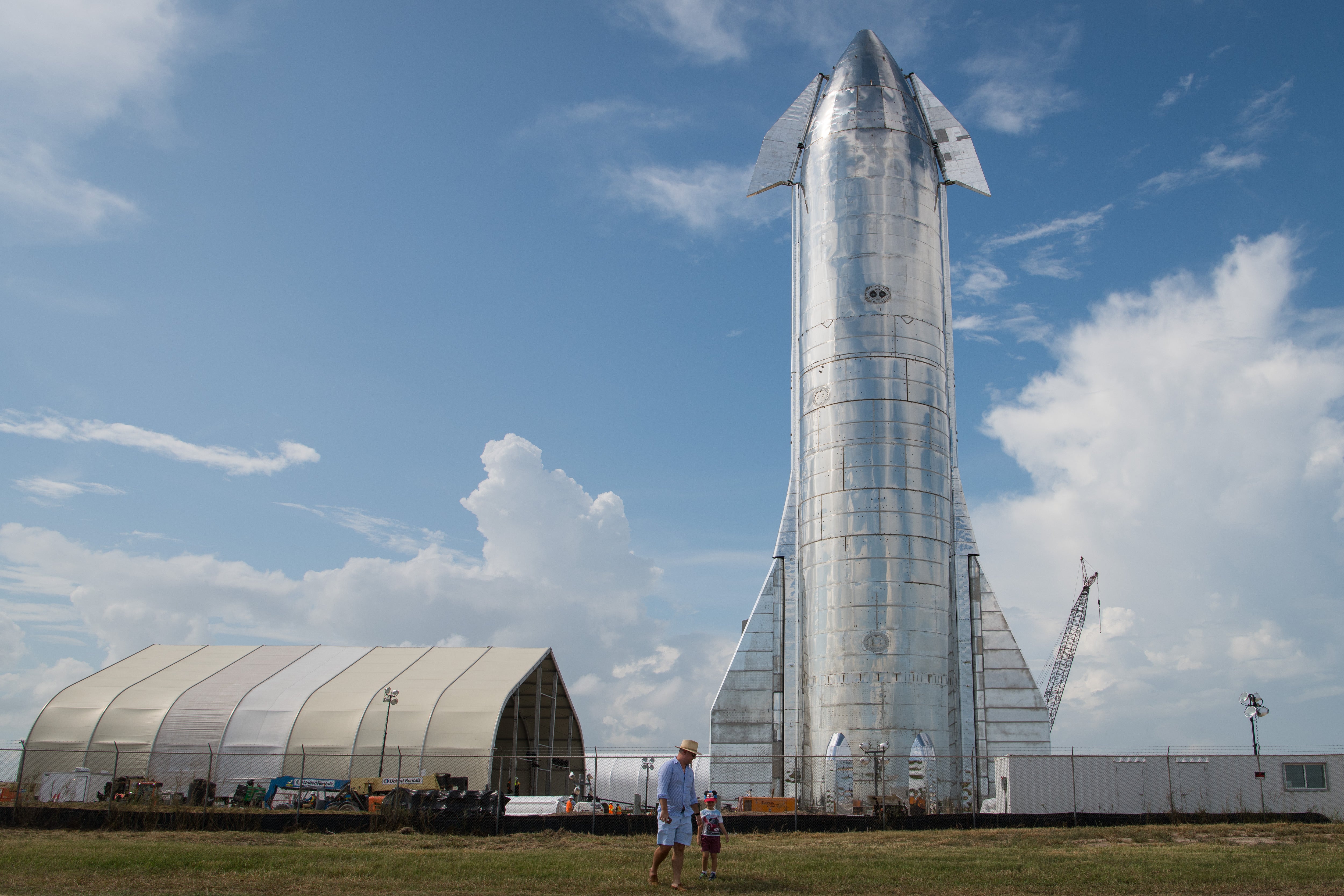Aviation authority defends SpaceX in Congress despite rocket launch ignoring safety inspector’s warnings
Starship prototype represents an early version of the rockets that the company hopes would carry people to the Moon and Mars

Your support helps us to tell the story
From reproductive rights to climate change to Big Tech, The Independent is on the ground when the story is developing. Whether it's investigating the financials of Elon Musk's pro-Trump PAC or producing our latest documentary, 'The A Word', which shines a light on the American women fighting for reproductive rights, we know how important it is to parse out the facts from the messaging.
At such a critical moment in US history, we need reporters on the ground. Your donation allows us to keep sending journalists to speak to both sides of the story.
The Independent is trusted by Americans across the entire political spectrum. And unlike many other quality news outlets, we choose not to lock Americans out of our reporting and analysis with paywalls. We believe quality journalism should be available to everyone, paid for by those who can afford it.
Your support makes all the difference.The US Federal Aviation Administration’s (FAA) space office head defended Elon Musk’s SpaceX at a Congressional hearing despite the company’s unauthorised launch of a Starship prototype in December ignoring warnings from a safety inspector.
During the House Transportation and Infrastructure Committee hearing on Wednesday, representative Peter DeFazio and others asked FAA associate administrator Wayne Monteith what SpaceX has “done to deal with the operational concerns” and “cultural issues,” flagged after the company’s unauthorised launch of its SN8 Starship prototype.
While Mr Monteith has criticised SpaceX in the past for its actions “inconsistent with a strong safety culture,” he defended the aviation authority’s decision to allow further flights of its Starship prototype rockets.
“We would not have cleared them to start flight operations again had I not been confident they had modified their procedures effectively and addressed the safety culture issues that we saw,” Monteith told the hearing committee.
Powered by three Raptor rocket engines and made of stainless steel, the Starship prototype stands about 45 metres (150 ft) tall, and represents an early version of the rockets that the company hopes would carry people to the Moon and Mars.
Following the launch of the SN8 prototype, despite a safety inspector’s warning, Mr Monteith, who leads the FAA’s Office of Commercial Space Transportation, told the company the December launch was “based on impressions and assumptions.”
But SpaceX replied that it went ahead with the launch despite the warning since its mission control “assumed that the inspector did not have the latest information.”
Although the high altitude flight test was successful, the rocket exploded on impact during its landing attempt. SpaceX eventually stuck the landing three test flights later with its SN15 prototype in May.
However, the House Transportation and Infrastructure Committee did not invite SpaceX or Mr Musk to testify at the hearing to answer questions raised about its recent scrutiny.
The committee also expressed concerns about potential increased future delays in commercial air travel due to traffic from growing numbers of experimental spaceflight missions in the US air space.
“I am not in favour of telling people in America who are travelling for pleasure or for work or whatever reason on a commercial airplane that their flights are delayed by an hour and a half because some billionaire is going to experience 15 minutes of weightlessness. I want to see that does not happen,” Mr DeFazio said.
Mr Monteith added that in the next few months the first operational tests of Space Data Integrator – a system designed to support integration of launches into the national airspace system, limiting the size and duration of airspace restrictions – could address these concerns.
As the rocket launch market in the US continues to grow at an unprecedented rate in the past decade with active participation of private players like SpaceX and Jeff Bezos’ Blue Origins, the FAA is tasked with further streamlining air space for launches, which can impact airline traffic.
Join our commenting forum
Join thought-provoking conversations, follow other Independent readers and see their replies
Comments